Ingredients
- 5–7 pound bone-in pork shoulder
- 2 tablespoons Knorr chicken bouillon
- 1 tablespoon SYD All Purpose Rub
- 2 teaspoons Hawaiian Red Alea Salt or coarse salt
- Worcestershire sauce
- 2 pieces banana leaf, 9” X 9” (frozen from Asian market)
- Couple pieces of frozen banana leaves to wrap the pork butt
- Aluminum foil
Mopping Liquid
- 1/4 cup of golden brown sugar
- 1 13–ounces can of Crushed Pineapple (in juice)
- 1/2 stick butter, melted
- 3 tablespoons of apple juice or pineapple juice
- 1 tablespoon liquid smoke Stubbs brand (optional)
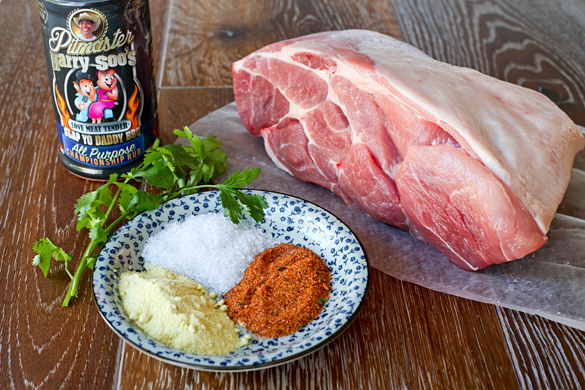
Instructions
- Create a pork rub by combining the chicken powder, SYD rub, and coarse Hawaiian salt
- Sprinkle a couple of dashes of Worcestershire sauce to wet the pork butt so the rub will stick and be tacky
- Apply a generous layer of the pork rub all over the butt

- Wrap in plastic wrap for 1 hour or overnight
- Preheat Weber Kettle to 275F using Kingsford briquettes with a hot zone and a cool zone for indirect smoking
- Take meat out of fridge and remove plastic wrap.
- Place butt on grate on the cool side of the Kettle and adjust the damper vents to maintain 275F

- Add a tennis-sized chunk of mesquite wood. Add another after 30 minutes. Two chunks are enough
- Smoke until the crust forms and it passes the scratch test. That is, if you gently scratch the surface of the butt, the rub should not come off in your fingernail. For a 7 lb butt, it should take 4-6 hours to reach this stage. Spray with tap water using a $0.99 cent plastic spray bottle every 30 minutes starting at the 3-hour mark
- Lay out aluminum foil on a counter. Place one piece of banana leaf on the foil.
- Remove butt and place on banana leaf. Add the mopping slurry of brown sugar, crushed pineapple, melted butter, and fruit juice.
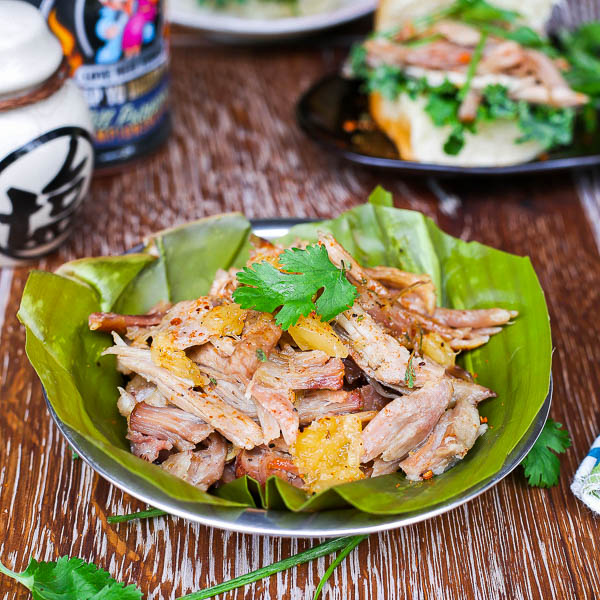
- Top with second banana leaf.
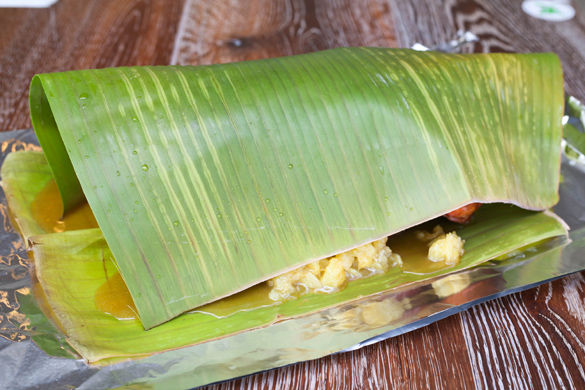
- Wrap tightly with foil. Rewrap with a second layer of foil if needed to ensure an airtight seal.
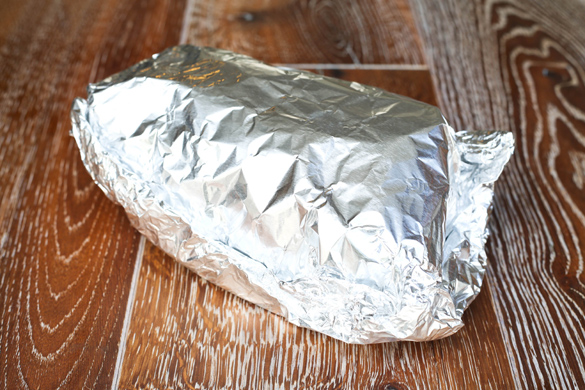
- Place in 250F oven. Remove when probe tender (about 198F internal or about 2 to 2 ½ hours in the foil stage).
- Cut open foil and let vent for 30 minutes.
- Remove from foil and shred. Pour the pork jus in the foil onto the meat. Season to taste with more SYD All Purpose Rub.
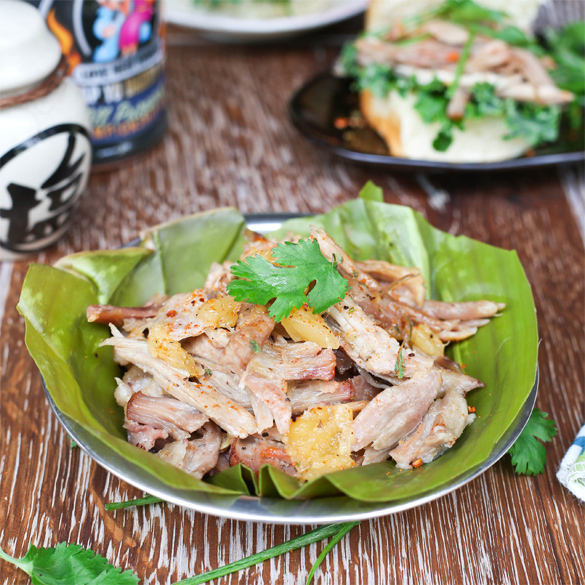
- Enjoy with store-bought steamed buns, Hawaiian sweet rolls, mashed potatoes, or mashed taro (poi)
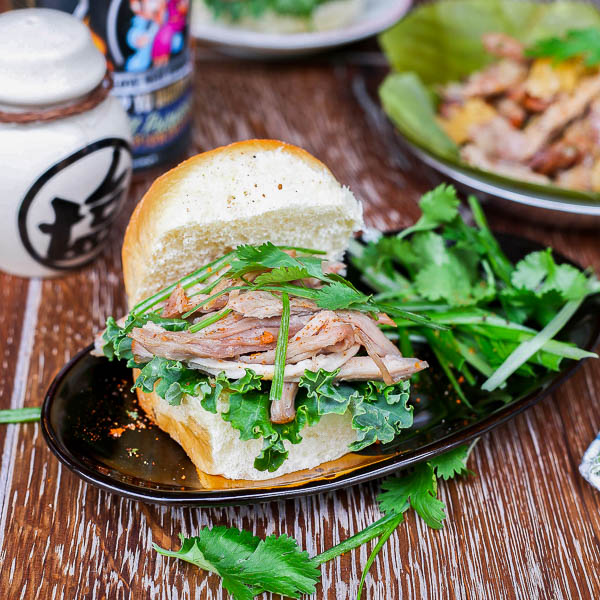
- Prep Time: 30 mins
- Cook Time: 4 hours
- Category: Entree
- Cuisine: American
